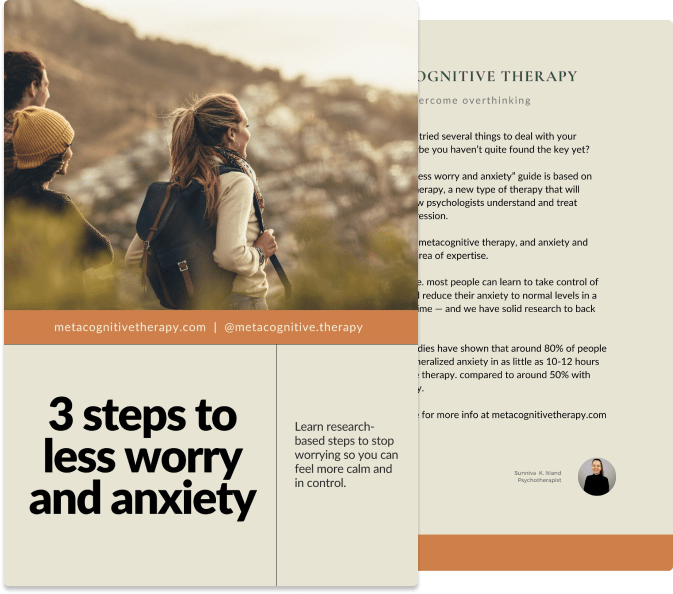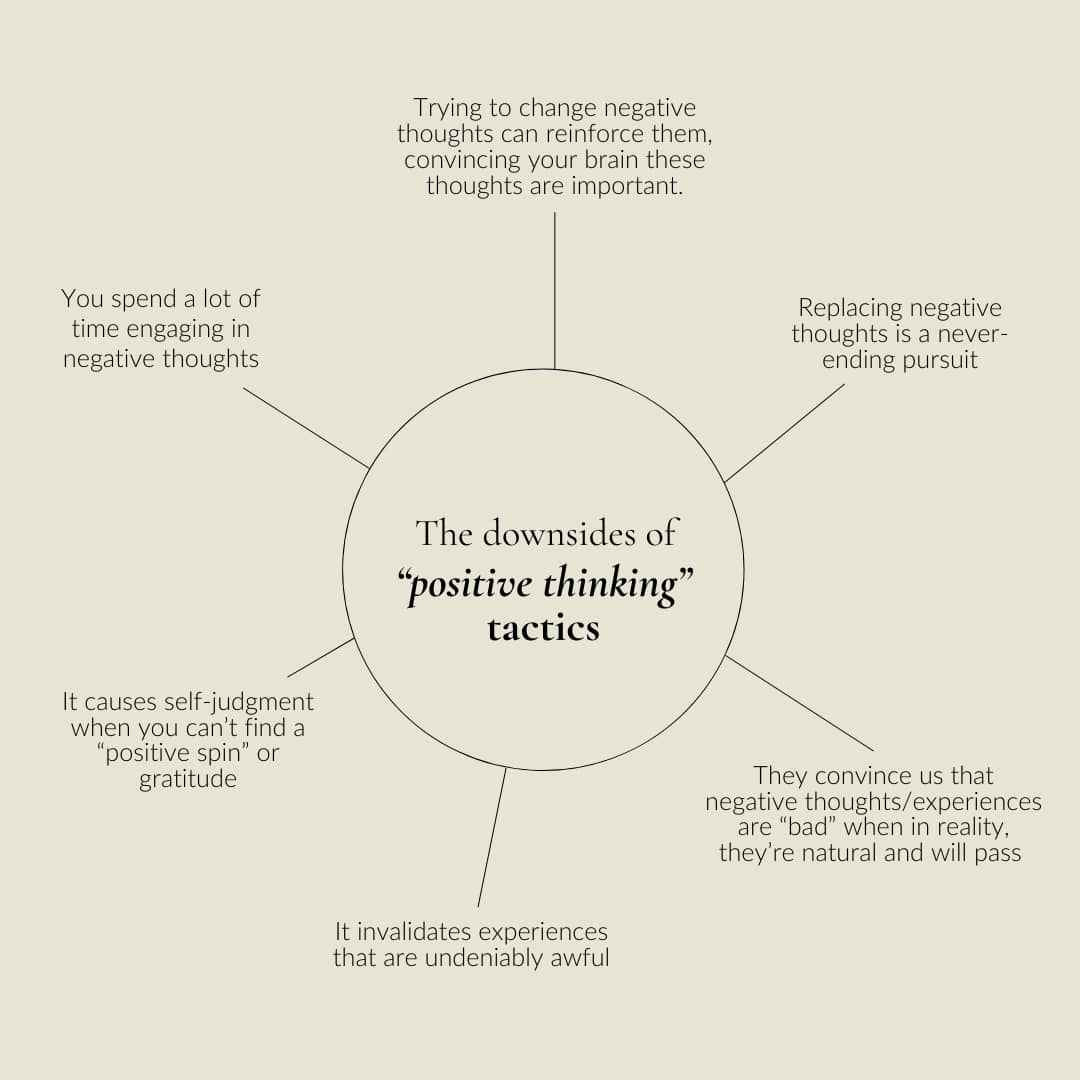Does positive thinking help fix anxiety?

Download our best tips on reducing anxiety and worrying
Learn three powerful metacognitive therapy steps to stop the worry cycle, reduce anxiety, and feel calmer in everyday life.
.jpeg)
.jpeg)
You’ve probably been told at some point to “just think positively” or replace negative thoughts and worries with positive ones. In recent years, there's been a major surge in positive thinking, uplifting mantras and affirmations, and reprogramming your thoughts to improve mental health.
A lot of people learn these techniques from Cognitive Behavioral Therapy (CBT), where replacing negative thoughts with positive ones is a common strategy. But new research based on Metacognitive Therapy (MCT) suggests this doesn’t necessarily improve anxiety in the long run. The research actually shows that we don't need to think more positively, we just need to spend less time on our negative thoughts.
Why positive thinking doesn’t work
When we think of every negative thought as a problem to be solved or transformed, we end up spending a lot of time engaging with them. We put more logs on the fire with every strategy we use, instead of putting the fire out. So what happens when we engage with positive thinking tactics?
1. It can reinforce negative thoughts.
When we actively try to change or solve our negative thoughts, we might actually reinforce them. Engaging with a thought like 'I'm not good enough” by attempting to counter it with positive affirmations can signal to our brain that this thought is important, which makes it more persistent. It also leads you to spend more time thinking about negative topics.

Download our best tips on reducing anxiety and worrying
Learn three powerful metacognitive therapy steps to stop the worry cycle, reduce anxiety, and feel calmer in everyday life.
2. Thought replacement is a never-ending pursuit.
Attempting to replace every negative thought with a positive one can become an endless cycle. It’s completely normal to have negative thoughts every day (negative thoughts aren’t actually the problem) but how we respond to them, and the process of constantly monitoring and changing these thoughts, can create more stress and anxiety.
3. It can create more self-judgment
Positive thinking can cause self-criticism when it doesn’t work — when we struggle to think of gratitudes, when we can’t find a positive spin, when we can’t come up with something we like about ourselves. People might feel more stress and guilt because they can’t “fix” their negative thoughts, so their anxiety compounds.
4. It can invalidate our experiences
The pressure to “find the silver lining” of a horrible experience can be dismissive and unhelpful. When there’s an undeniable issue, like a health diagnosis, positive thinking can end up bordering on self-gaslighting as you try to convince yourself of a perspective you don’t really believe in.

What should you do instead of positive thinking?
The MCT approach helps people accept that negative thoughts are totally normal and transient. We don’t need to interfere and “fix” every negative thought we get — they're just thoughts. If we let them be, they will eventually pass by themselves.
Here are a few MCT strategies that can help you disengage.
- Postpone your worrying: When negative thoughts or worries arise, postpone dealing with them. You can always come back to them during a scheduled “worry time”, but you’ll often find the urgency diminishes over time, and those thoughts won’t feel as important or stressful.
- Differentiate between worry and problem-solving: Focus on the actions you can take to solve a problem, rather than ruminating on unproductive worries that won’t help. By focusing on actionable steps rather than ruminating on thoughts, you can move on from the problem sooner.
- Accept that negative thoughts are natural: Positivity culture may try to convince us that we should eliminate and replace all our negative thoughts to be happy, but it’s not the negative thoughts themselves that cause ongoing anxiety or depression — it’s our response to these thoughts. (Keep in mind that everyone has negative thoughts, but not everyone develops anxiety or depression.)
You can still practice activities like gratitudes, affirmations, and journaling if they support your wellness and bring you joy. But if the goal of these activities is to eliminate anxiety, they may reinforce more negative thoughts and worries. That positive reprogramming might provide short-term relief in the moment, but it forces us to constantly rally with every worry that comes up.
If we trust our minds to self-regulate and allow thoughts to pass, imagine all the time and the energy we can get back that we previously spent meddling with negative thoughts, trying to solve and replace them. What if you don’t try to change every negative thought? What if they aren’t a sign that something is wrong? What if you can worry about it later? We can experience a lot more mental freedom when we stop overthinking and let our thoughts be.
To learn more about how Metacognitive Therapy treatment works, check out this article.



